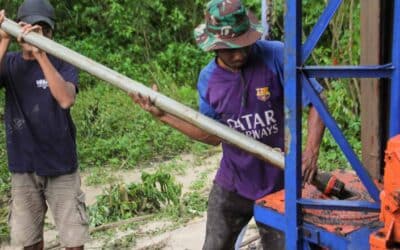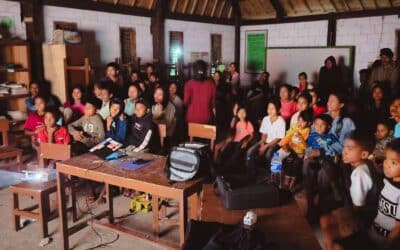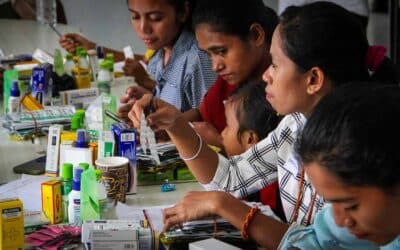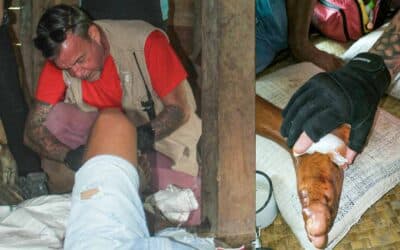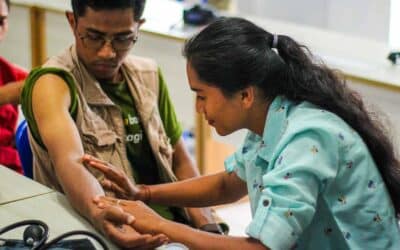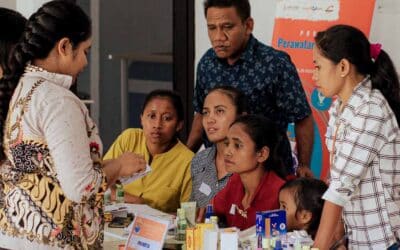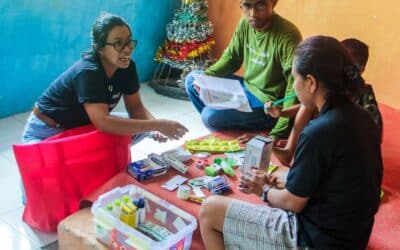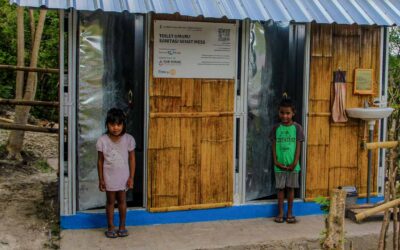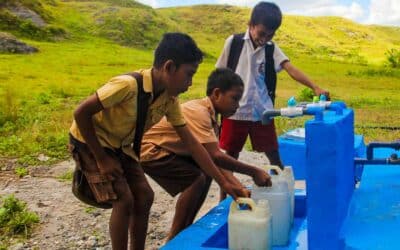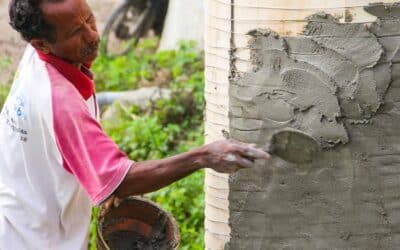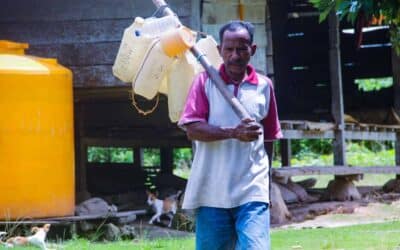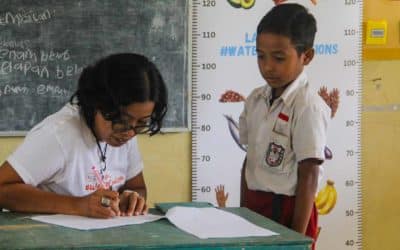Our team at the drilling site of Phase 3 of the Laindatang Water Connection Project in East Sumba demonstrates...
Through the Primary Medical Care program, Kawan Sehat health workers provide treatment for fevers, wounds, and malaria in villages lacking access to doctors. They carry essential medicines, adhere to established medical protocols, and refer emergency cases promptly to prevent delays in care.
Donate
Support Care
Programs
All projects
Quick News
Field updates
Stories
Field stories
The province of Nusa Tenggara Timur, home to some of Indonesia’s most remote and underserved communities.
Matawai the Shades of Water: Mbinudita’s Water Journey
Our documentary, "Matawai de Shades of Water," premiered in the remote village of Mbinudita. The film explores the...
Empowering Rural Women Health Workers
In the Mahu sub-district of Wairara, health workers from Kawan Sehat diligently restocked their medication supplies...
Primary Medical Care in Rural Areas Saves Lives
Alex skillfully performed a surgical incision on a young man from Hambarita who had been bitten by a deadly snake....
Life-Saving Primary Medical Actions in Rural Areas
Our team is training Kawan Sehat health workers to measure blood pressure in ultra-rural areas where medical...
Primary Medical Care: Lifesaving Rural Healthcare Initiative
Our Kawan Sehat health workers are trained by competent medical experts in the Mahu region, known for the highest...
Revolutionary Primary Medical Care Program Saves Lives
Katrina, a pioneer in the #PrimaryMedicalCare initiative, has been saving lives in Lapinu for over two years. This...
Empowering Women and Girls with Clean Water Access
Two young girls from a remote village in Eastern Sumba have discovered clean water and private toilets for the first...
Clean Water for Children: Health and Life Preservation
What Pak Kudu Huring and the village residents have accomplished with the Water Connections program is solid. A...
Life-Changing Water Projects in Ultra-Rural Villages
Pak Kudu Huring is building a 5,000-liter ferrocement tank to supply his village with drinking water as part of the...
Laindatang’s Water Crisis: A Lifesaving Initiative
This new “Picture of the Day” shows you Pak Kudu Huring, who leaves early in the morning to fetch a few litres of water from his house, which is too far from his village of Laindatang. He carries with him nearly ten Jerry cans on his shoulder; he walks quickly, and it isn’t easy to follow him. He makes this trip once or twice a day. He will have to walk several hours to return home with water to drink, eat, and water the animals…
Finding water is a big challenge in extremely rural eastern Sumba villages like Laindatang, finding clean water is a daily challenge. Residents have to venture miles to collect it and often find themselves with resources unfit for consumption. This situation further exposes their society to serious health risks, such as Malaria, Polio, diarrheal diseases, typhoid fever, dysenteric infections, and parasitic diseases, often attributed to the consumption of contaminated water, which aggravates cases of malnutrition while increasing infant mortality rates.
The Water Connections project in Laindatang, which Fair Future initiated, is appropriate for this situation. Drinking water points have been installed near homes, considerably reducing the distances travelled to fetch water. We guarantee a constant supply of clean water through deep drilling and installation of pumps, tanks, and filtration systems, ensuring high-quality standards are met.
In addition to providing water, our project also organizes educational sessions on hygiene and water management that aim to raise awareness of sanitation practices among residents. The program emphasizes the importance of washing hands with soap, saving water efficiently, and maintaining good personal hygiene to prevent infections – all of which villagers learn during the course of these information sessions.
The effects of Water Connections are already evident, as the reduction in illnesses associated with contaminated water improves the community’s overall well-being. With healthier children attending school more regularly, their educational opportunities and future prospects become more promising. Additionally, adults with fewer health problems tend to be more productive and help drive economic growth in the village.
In Laindatang, there is constant change. The female population, who generally bear the burden of water collection tasks, now have more time to devote to other educational or productive activities. With access to uncontaminated watering systems and thriving vegetable gardens in communal gardens, families can supplement their income while having more excellent nutritional resources within their reach.
Our efforts to address the water crisis in Laindatang go far beyond providing clean water. We are making significant progress toward improving health care and education outcomes and spurring economic growth in local communities.
Through this project, we aim to give villagers long-term solutions that will enable them to create a better future for themselves and their families. Our unwavering commitment to transforming disadvantaged regions is reflected in our commitment to ensuring access to vital resources such as clean water.
Fair Future Foundation medico-social camp in East Sumba – Rumah Kambera, Lambanapu – The 15th of July 2024.
Improving Children’s Health with Water and Nutrition
This new “Picture of the Day” shows Ayu spending time with a child from Laindatang in East Sumba, where we have been working for over two years as part of the #WaterConnections and #ZeroMalaria programs. Ayu will measure this child along with 78 others, and also weigh him to assess his hygiene and determine whether he is doing well and gaining weight.
Our main objective is to improve the standard of living of ultra-rural communities while ensuring their sustainable development. We pay particular attention to promoting the growth and physical well-being of children, as malnutrition remains a significant problem affecting approximately 15–20% of young people. This means that hundreds of children are facing weight and nutrition issues that concern us deeply.
We provide healthcare programs that educate parents, villagers, and schools in ultra-rural areas about good nutrition. Due to the extreme poverty and isolation in these regions, healthy eating habits are often unfamiliar concepts. Therefore, we provide them with nutritious meals made with local ingredients while teaching them to grow their own gardens for a healthier diet.
Our approach emphasises crucial skills such as eating vegetables as often as possible, drinking clean water through our #WaterConnections initiative, and protecting yourself from infectious diseases by adopting preventative measures.
One of our team members can be seen in this new Picture of the Day, watching over a child. Our mission is to weigh, measure and evaluate hundreds of children every week to ensure their medical and hygienic well-being. This evaluation is essential to determine the effectiveness of our on-site programs. We have witnessed impressive results: Better access to water has improved nutrition, which has translated into increased vitality, better health, and an overall healthier lifestyle.
Improving water availability and nutrition creates a beneficial loop that transforms lives and strengthens disadvantaged communities.
Fair Future Foundation medico-social camp in East Sumba – Rumah Kambera, Lambanapu – The 12th of July 2024.



